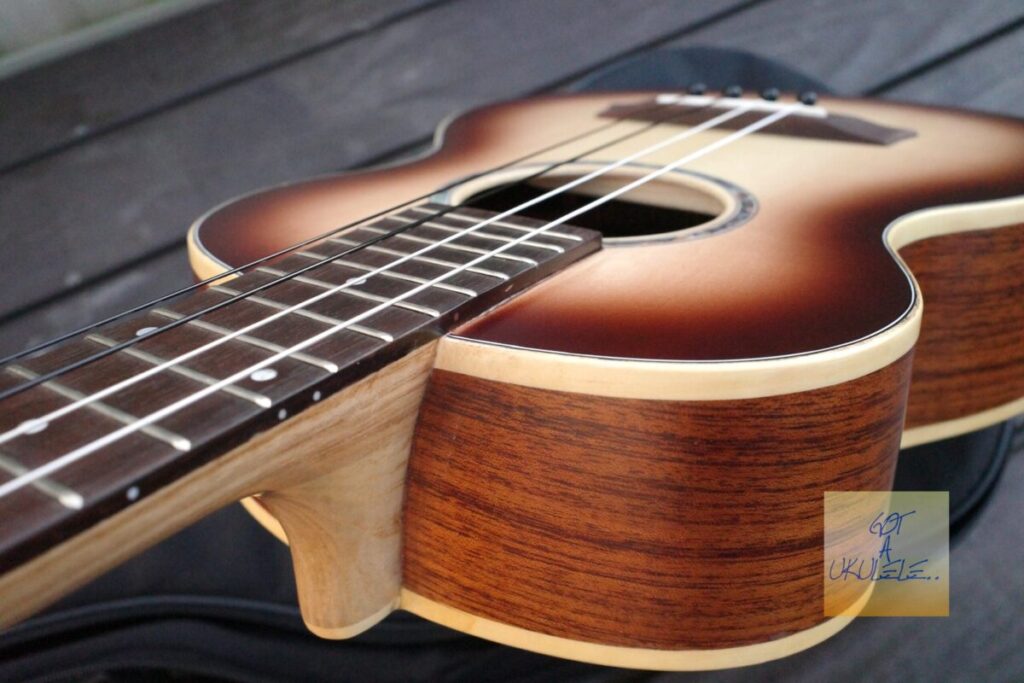If you’re a soprano, concert, or tenor ukulele player accustomed to the classic GCEA tuning, adding a baritone ukulele tuned to DGBE to your collection can unlock a whole new world of musical possibilities. Here’s why you should consider it:
1. Expanded Range and Depth
The baritone ukulele’s deeper DGBE tuning offers a rich, warm sound that complements the brighter tone of smaller ukuleles. It bridges the gap between ukulele and guitar, making it perfect for players seeking a fuller sound without losing the ukulele’s charm.
2. Greater Versatility
Playing a baritone allows you to explore a wider variety of musical genres. Its tuning aligns with the highest four strings of a guitar, making it easier to adapt guitar chords, songs, and fingerpicking techniques to your playing repertoire.
3. Ideal for Singing and Soloing
The lower pitch of the baritone can complement singers with deeper voices, and its resonant tones make it a fantastic instrument for solo arrangements.
4. Challenge and Growth
Switching to DGBE tuning challenges your muscle memory and broadens your musical knowledge. It’s an opportunity to expand your chord vocabulary and refine your skills while maintaining the familiarity of the ukulele. Adding a baritone ukulele to your collection doesn’t replace your smaller instruments; it enhances your musical journey. Whether for performing, composing, or just exploring, the baritone ukulele is a must-have for any dedicated ukulele enthusiast.
A few years ago, ukulele performer and teacher Phil Doleman made this fantastic video explaining to uke players how to get started playing the baritone. I’d really recommend watching this if you are thinking about trying a baritone, but are worried about how you will adapt to a bigger instrument and different tuning.
Happy strumming 🙂
Matt
